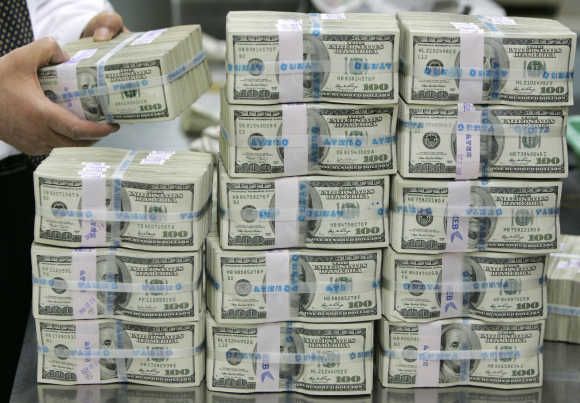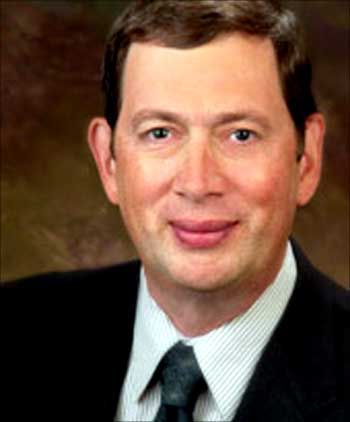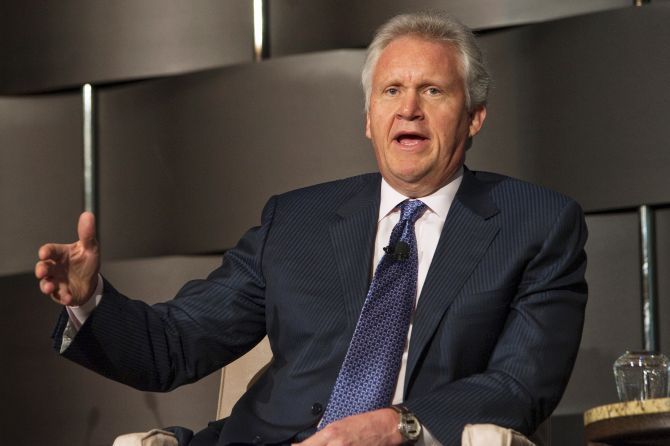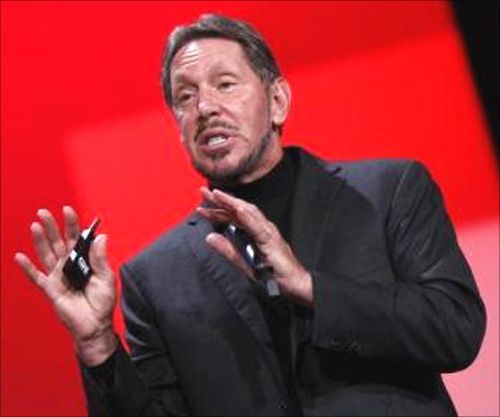CEOs may be benefiting greatly from a rising tide even when their performance might be weak.

Chief executive officers at large US companies collectively realised at least $6 billion more in compensation than initially estimated in annual disclosures in the five years after the financial crisis first hit, according to a Reuters analysis.
The reason for the windfall: the soaring value of their stock awards.
About 300 CEOs who served throughout the 2009-2013 period at S&P 500 companies together realised about $22 billion in compensation in the form of pay, bonuses and share and option grants, or an average of $73 million each, figures provided by executive compensation data firm Equilar show.
That compares to about $16 billion initially reported in annual company summary compensation tables, which include estimates for the value of stock grants based on the price of shares at the time of awards.
The comparison does not include pensions and perks such as country club memberships and use of corporate jets for private use.
The study also excludes rewards reaped by other top executives, such as chief financial officers and chief operating officers, and compensation for CEOs who did not serve the full five years.
Further gains in share prices in 2014 and so far this year will only have increased the gap between the annual disclosures and the amount actually derived from the awards, with the full picture for last year only becoming clear over the next couple of months.
The S&P 500’s total return, including dividends, was 166 per cent from the end of 2008 through Monday of this week, according to S&P Dow Jones Indices.
The impact of the stock market gains on executive pay illustrated in the study will strengthen concerns about how much of an impact the US Federal Reserve’s easy money policies have had on income inequality.
Critics say that by raising the value of assets, such as stocks, the Fed's stimulus has helped those who are already wealthy even as median household income declined 4 per cent between 2009-2013.
The bull market also has some investors re-evaluating how they judge compensation plans.
In some cases, they say CEOs may be benefiting greatly from a rising tide even when their performance might be weak.
”You’re seeing overpayment, or outsized payments, for what is market performance or mediocre performance,” said Aeisha Mastagni, an investment officer for the $191 billion California State Teachers’ Retirement System, who helps oversee its votes on executive pay proposals at company annual meetings.
“Directors can’t ignore the issue of pay inequality or rising executive pay.”
However, more companies are disclosing their realised pay figures and some are eager to defend the supercharged rewards if shareholders have also benefited.
Some of the highest paid executives also often appear in top CEO lists compiled by investors and others because they have run companies so successfully that their share prices have gone through the roof.
A $600 MILLION QUESTION

An example is John Martin, the CEO of drug maker Gilead Sciences Inc, who has become the best compensated executive of a major US company since the crisis, when factoring in stock and options.
He realised $400.6 million in total compensation from 2009 to 2013, according to the Reuters analysis of the nearly 300 CEOs tracked by Equilar.
That is poised to top $600 million by this summer, mostly because of additional exercises of stock options.
Their value has surged well beyond the estimates in annual disclosures.
Gilead had estimated Martin's compensation totaled only $75 million over the five years from 2009 to 2013. But Gilead's shares have climbed nearly 300 per cent since the end of 2008 while net income almost quadrupled to $12.1 billion in 2014, fuelled by sales of its hepatitis C drug Sovaldi.
The company declined to comment for this story.
The second highest-paid CEO over the period was Starbucks Corp's Howard Schultz who realised $366 million, or more than three times the $97 million reported in summary compensation tables.
That upside is largely the result of the cafe chain’s shares climbing 931 percent since the end of 2008 as earnings surged.
“When the company performs well and the stock price increases, our executives, partners (employees) and shareholders are all rewarded,” a Starbucks spokeswoman said.
The equity-oriented pay structure is good for CEOs of high-growth companies, but also bites those who don’t show big growth.
Larry Ellison, CEO of Oracle Corp , realised $282 million during the five-year period analysed by Reuters.
That was $100 million below the value reported in Oracle's summary compensation tables.
The software giant's total stock return since 2008 has been several percentage points better than the S&P 500 Index, according to FactSet.
But off a large base, profit growth has been relatively slow. Operating income has increased by 8 per cent to $14.8 billion over its past three fiscal years.
Oracle declined comment.
GE CEO LAGS

Another CEO who realised less pay than originally estimated was Jeff Immelt of General Electric Co.
His $52 million in realized pay was less than the $69.2 million reported in summary compensation tables for 2009-2013.
With a total return of about 96 percent since the end of 2008, GE shares badly lag the S&P 500 index. GE declined to comment.
Companies began introducing bigger stock and options awards in executive pay packages in the 1990s as a means of reducing tax liability on cash bonuses and as part of a push to encourage CEOs to act in the interests of shareholders.
But with stock markets breaking records, some worry the awards will only underscore the widening gulf between the compensation of top executives and average workers.
"The numbers can be obscene, particularly when you look at the general challenges we face as an economy and society," said Matthew Benkendorf, a portfolio manager at Vontobel Asset Management, which oversees about $50 billion.
In 2013, CEOs made 331 times the average worker's income, the largest such gulf in American history and a gap that is set to rise further, according to a study by the AFL-CIO, the largest US federation of unions.
"The executive has received a windfall based on the bull market, which isn’t always attributable to their own performance, and that’s wrong," said Brandon Rees, deputy director of the AFL-CIO’s Office of Investment, which advises union-sponsored pension plans managing $560 billion.

Big investors can influence the size of company pay plans but have mostly backed management, largely because the value of their shares has also been climbing.
In each year since 2011 when most Russell 3000 companies began holding advisory votes on executive compensation, more than 90 per cent of companies have gotten more than 70 per cent approval for their executive compensation plans, according to pay consultant firm Semler Brossy.
For example, Michael Cuggino, president and portfolio manager of the $5.3 billion Permanent Portfolio Family of Funds in San Francisco, supported the pay of Gilead CEO Martin.
His funds own Gilead shares and Cuggino said Martin deserves credit for managing the company in a risky industry, where failed drug trials are common and can wreck a company’s share price.
"As long as we're happy with the company, and it's making investors money, we don't begrudge the executives getting their money," he said.











